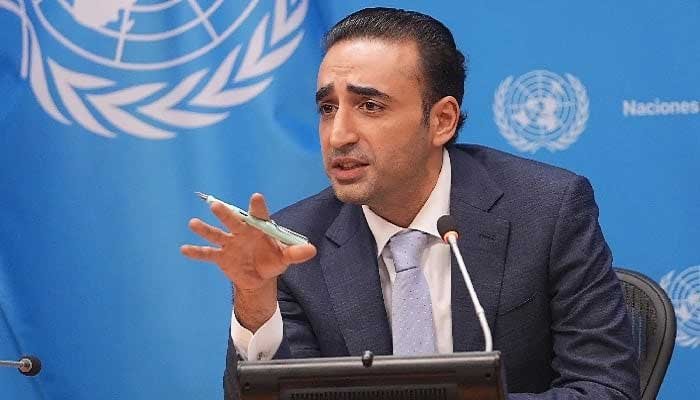Here’s a natural and coherent rephrasing of the provided article, maintaining its original meaning and tone:
Pakistan Peoples Party (PPP) Chairman Bilawal Bhutto-Zardari has voiced strong concerns about India’s decision to unilaterally suspend the Indus Waters Treaty (IWT). In an interview with *DW Urdu*, he warned that such actions could be seen as an existential threat to Pakistan, stating that blocking Pakistan’s water supply could make war “inevitable.” He emphasized that water is Pakistan’s lifeline and they would not relinquish their rightful share.
Bhutto-Zardari’s comments follow India’s suspension of the IWT after the attack in the Pahalgam area of Indian Illegally Occupied Jammu and Kashmir (IIOJK) on April 22. India has linked Islamabad to the attack without presenting any concrete evidence, and has taken several punitive measures, including suspending the IWT, revoking Pakistani visas, and closing the Wagah-Attari border.
In response, Pakistan expelled Indian diplomats and military advisors, cancelled visas for Indian nationals (except Sikh pilgrims), and closed the main border crossing from its side. Islamabad has also denied involvement in the attack and offered to participate in an independent investigation.
Recently, a high-level Pakistani parliamentary delegation, led by Bhutto-Zardari, concluded a peace mission to Brussels following visits to Washington, New York, and London. The aim of these visits was to counter what they view as Indian propaganda in the wake of the recent conflict between the two nations.
During the interview, Bhutto-Zardari characterized India’s threat to cut off water flow as a violation of the UN Charter. He reiterated that if India engages in “water aggression,” Pakistan would be left with no other option than to go to war.
He also accused India of supporting terrorist activities within Pakistan. However, he noted that Pakistan has never advocated for war as a response to terrorism. “We do not want war,” the PPP chief said, stressing Pakistan’s desire for peace. However, he insisted that the country’s survival and water security are non-negotiable.
Last month, Pakistan’s armed forces launched “Operation Bunyan-um-Marsoos,” a large-scale retaliatory military action, targeting Indian military assets across several regions. According to reports, Pakistan downed six Indian Air Force jets, including three Rafales, and numerous drones. A ceasefire agreement brokered by the United States brought the conflict to an end on May 10, after 87 hours of fighting.
The Inter-Services Public Relations (ISPR) reported that 53 people, including 13 members of the armed forces and 40 civilians, were killed by Indian strikes during the recent confrontation.


